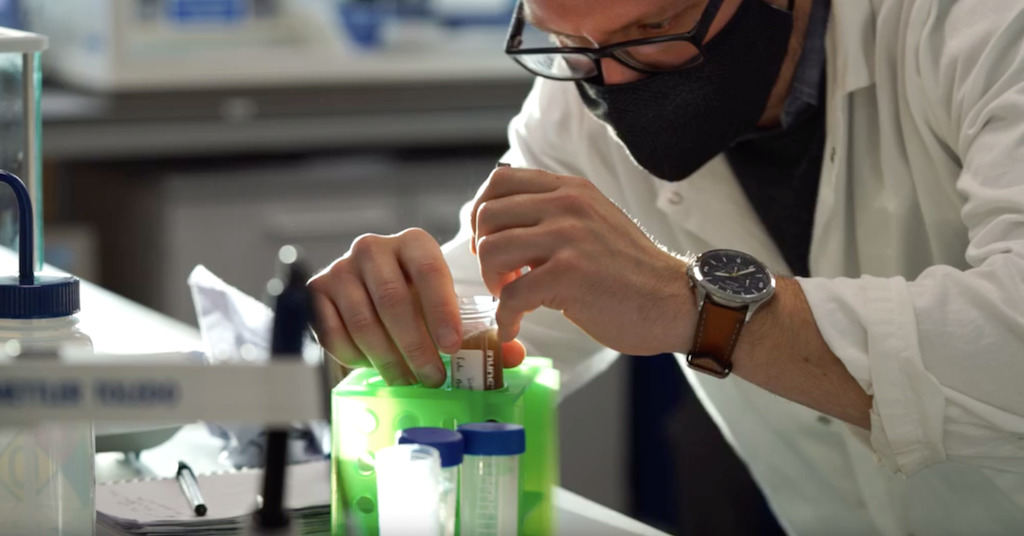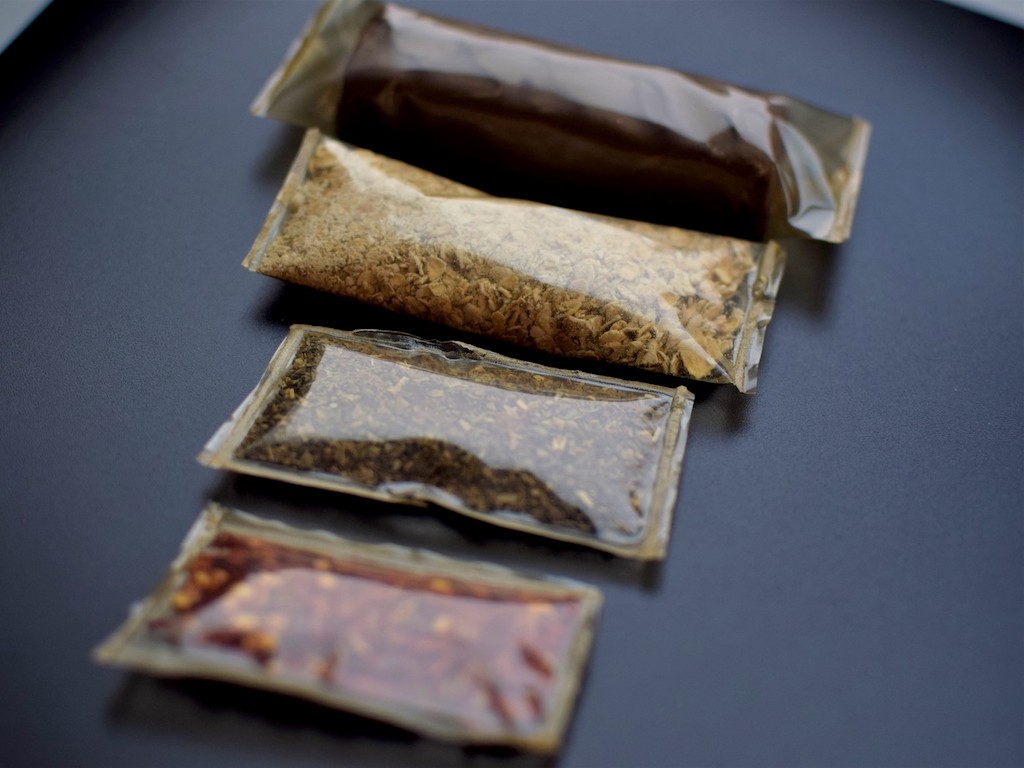4 Mins Read
Xampla, the University of Cambridge spin-off startup, will soon introduce compostable plastic-free sachets and capsules made using a new “vegan spider silk” material. The new polymer material, which is plant-based, scalable and sustainably-made, has been developed by Cambridge researchers and could be used to replace single-use plastic items once and for all.
Scientists from Cambridge showcased their new “vegan spider silk” in a recent paper published in the journal Nature Communications, and Xampla, the startup that was borne out of the research project, is going to commercialise it. This new material mimics the properties of spider silk, which is one of the strongest materials found in nature, down to the molecular level by assembling together plant proteins.
“Other researchers have been working directly with silk materials as a plastic replacement, but they’re still an animal product. In a way, we’ve come up with ‘vegan spider silk’ – we’ve created the same material without the spider,” said paper co-author Dr. Marc Rodriguez Garcia, who is also the head of R&D at Xampla.

It was a surprise to find our research could also address a big problem in sustainability: that of plastic pollution.
Professor Tuomas Knowles, Yusuf Hamied Department of Chemistry, University of Cambridge
The method itself is energy-efficient, scalable and uses sustainable ingredients like soy protein isolate, and results in a final product that resembles a plastic-like film – but it’s home compostable and safely degrade in the natural environment, unlike the petroleum-based conventional plastics that are fuelling the global waste and climate crises. Soy protein isolate is also a readily available byproduct ingredient that can be sourced from soybean oil production.
Xampla will use the patented technology to make single-use plastic and microplastic replacements, starting off with sachets and capsules – two of the most difficult-to-recycle and polluting items responsible for adding at least 855 billion pieces of plastic waste each year. The company plans to launch the compostable sachets and capsules made from the “vegan spider silk” as soon as this year, which can be applied to daily products such as dishwasher tablets and laundry capsules.
The Cambridge research team, which is led by Professor Tuomas Knowles of the Yusuf Hamied Department of Chemistry, detailed in the study that other uses for the polymer include water-resistant coatings.
“This is the culmination of something we’ve been working on for over ten years, which is understanding how nature generates materials from proteins,” explained Knowles, who was originally investigating functional protein interactions in the field of Alzheimer’s disease. “It was a surprise to find our research could also address a big problem in sustainability: that of plastic pollution.”

In a way, we’ve come up with ‘vegan spider silk’ – we’ve created the same material without the spider.
Dr. Marc Rodriguez Garcia, Head of R&D, Xampla
Rodriguez Garcia says that this key breakthrough of being able to create high-performance materials using their patented technology means that they are in the “fortunate position to be able to do something” about the enormous plastic pollution crisis. An international study of plastic pollution conducted last year found that even if we slashed plastic consumption by 80%, the planet will still have to grapple with astonishing 710 million tonnes of waste.
Fuelled by its recent £6.2 million (US$8.7 million) seed funding round earlier this year, which saw Li Ka-shing’s Horizons Ventures back the firm, Xampla says they ultimately hope to replace microplastics and single-use plastics altogether with its 100% natural plant-protein polymer alternatives.
At the time, Xampla’s chair Jeff Seabright, who formerly held the position of sustainability chief at Unilever, said: “The Xampla team had a great first year, with excellent technical and commercial progress.”
“We [will] continue to build Xampla and deliver its significant commercial potential by addressing one of today’s most pressing problems – plastic pollution.”
All images courtesy of Xampla.




